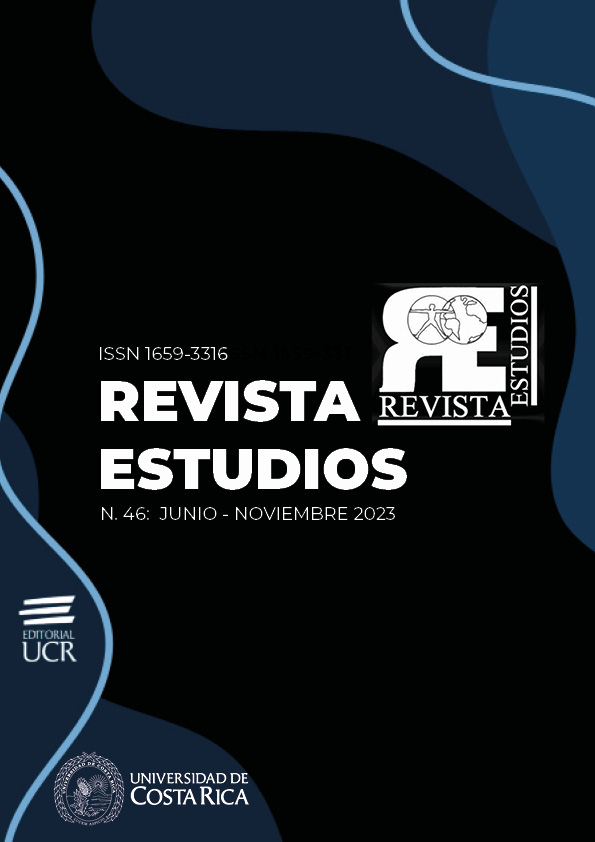Abstract
This article addresses the philosophical bases that originated the development of the various transhumanist theories, a school of thought that has become highly relevant today. In addition, this study details the main philosophical assumptions on which this school of thought is based. Furthermore, from these assumptions it is made an analysis of the distancing of the transhumanist model from the modern humanist model and about the urgent need for a critical and profound reflection carried out by the humanities regarding the dilemmas that arise as a product of the development and implementation of convergent technologies, which constitute how transhumanism can materialize.
References
Beck, U. (1998). La sociedad del riesgo. Hacia una nueva modernidad. Paidós
Bostrom, N. (2019). Valores Transhumanistas. Instituto de Extrapolítica y Transhumanismo.
Cañas, R. (2011). El origen de la filosofía y el retorno de los mitos. Editorial UCR.
Cardozo, J.J. y Meneses, T. (2014). Tranhumanismo: concepciones, alcances y tendencias. Análisis. Revista colombiana de Humanidades, 46(84), 63-88
European Parlament y Science and Technology Options Assessment. (2009). Human Enhancement. https://www.europarl.europa.eu/RegData/etudes/etudes/join/2009/417483/IPOL-JOIN_ET(2009)417483_EN.pdf
Ferrando, F. (2019). Philosophical Posthumanism. BLOOMSBURY ACADEMIC.
Ferrater, J. (1965). Diccionario de Filosofía. (Tomo I). Editorial Suramericana.
Fukuyama, F. (2002). El fin del hombre consecuencias de la revolución biotecnológica. Ediciones B.
Hottois, G. (2016). ¿El transhumanismo es un humanismo? Universidad del Bosque: Departamento de Bioética.
Marcos, A. (2018). Bases filosóficas para una crítica al transhumanismo. Revista de estudios de la ciencia y la tecnología. 7(2), 107-125. DOI: http://dx.doi.org/10.14201/art201872107125
Molpeceres, S. (2014). Mito persuasivo y mito literario. Bases para un análisis retórico-mítico del discurso. Ediciones Univerisidad de Valladolid.
National Science Foundation. (2002). Converging Technologies for Improving Human Performance Nanotechnology, Biotechnology, Information Technology and Cognitive Science. https://obamawhitehouse.archives.gov/sites/default/files/microsites/ostp/bioecon-%28%23%20023SUPP%29%20NSF-NBIC.pdf
Quesada, F. (2018). “Transhumanismo”: ¿Un nuevo humanismo? Un dilema fundamental para la bioética. Revista Estudios, (36), 1-25. https://doi.org/10.15517/re.v0i36.33505
Villarroel, R. (2015). Consideraciones bioéticas y biopolíticas acerca del transhumanismo. El debate en torno a una posible experiencia posthumana. Revista de Filosofía, 71, 177-190. DOI: http://dx.doi.org/10.4067/S0718-43602015000100014
World Transhumanist Association. (2002). The Transhumanist Declaration. https://www.humanityplus.org/the-transhumanist-declaration
World Transhumanist Association. (2003). The Transhumanism FAQ. https://www.humanityplus.org/transhumanist-faq
##plugins.facebook.comentarios##

This work is licensed under a Creative Commons Attribution-NonCommercial-ShareAlike 4.0 International License.
Copyright (c) 2023 Indira González Arias


